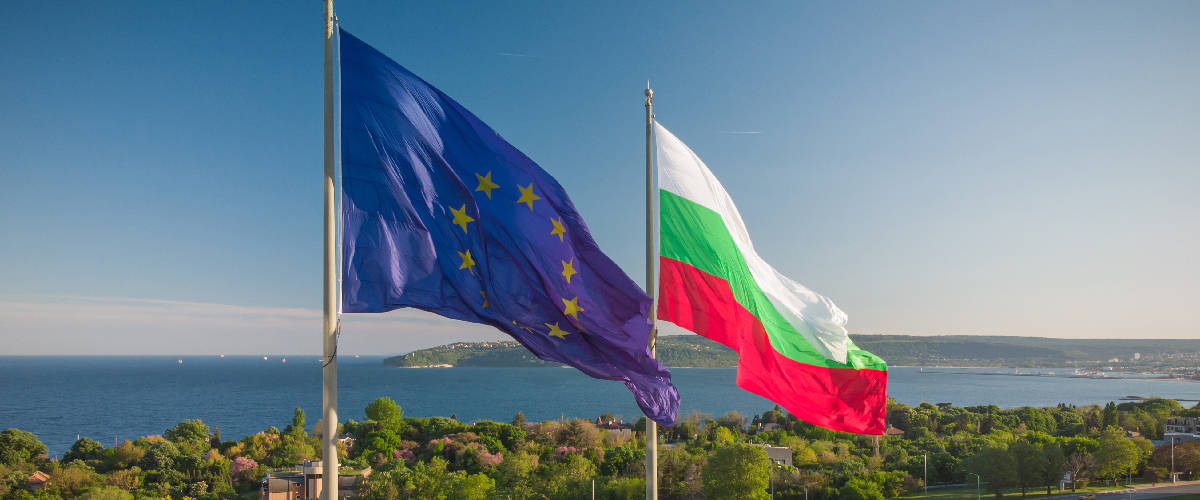Industry News

Global Citizenship Triumphs as Bulgaria and Romania Join Schengen Area
- Posted on Jan 16, 2024
- In Industry News, Bulgaria
In a landmark decision by the European Council, Bulgaria and Romania are set to join the Schengen Area by March 31, 2024.
The movement for global citizenship celebrates yet another significant milestone as the Schengen Area expands to welcome two new member states: Bulgaria and Romania. Controls at air and sea borders will be lifted from April 2024, facilitating smoother travel, trade, and tourism, while strengthening the internal market of the European Union.
Over the last decade, the EU has enhanced its security measures and introduced a new governance model that showcases the Union’s commitment to mutual trust and unity. This expansion, the ninth enlargement of the Schengen Area, not only highlights the willingness of Bulgaria and Romania to align themselves with European standards, it also emphasizes the Schengen Area’s adaptability in embracing new member states within the world’s largest border-free zone.
Both nations’ commitment to the EU has been underscored and substantiated by various assessments since 2011, including recent fact-finding missions in 2022 and 2023. Pilot projects that aimed to bolster external border management and cooperation took place alongside these assessments. In a press release issued by the European Commission, President Ursula von der Leyen hailed the inclusion of Bulgaria and Romania as a historic moment, and acknowledged the efforts of the two nations to meet the criteria necessary to join Schengen.
Discussions about lifting controls at land borders are expected to continue throughout 2024, while financial and Frontex assistance will maintain their support of Bulgaria and Romania in protecting the Union’s external borders. The successful pilot projects that took place ahead of this decision will also transition into more structured arrangements to ensure their enduring utility for the management of borders.
“The inclusion of Bulgaria and Romania in Schengen will further solidify its significance as a bustling nexus for thriving business, vibrant tourism, and dynamic cultural exchange,” shared Armand Arton, President and Chief Executive Officer of Arton Capital.
“One of my most cherished memories unfolded during a pan-European journey that I undertook with my parents as a child. In those times, obtaining visas for each country in advance was a painstaking process. Today, I am delighted to witness the realization of a dream, as Bulgarian and Romanian permanent residents and citizens can now embark on life-changing journeys with greater ease. Our vision of transforming arduous border crossings into gateways of opportunity – thereby fostering a brighter and more interconnected world – is becoming a reality,” declared Arton.
Originating as an agreement in 1985 between France, Germany, Belgium, the Netherlands and Luxembourg, the Schengen Area has evolved to comprise 27 countries and 4 million square kilometers, allowing a population of nearly 420 million people to traverse it visa-free. As Romania and Bulgaria join the Schengen Area, it will encompass 4.5 million square kilometers and a population of 450 million, further solidifying its significance within the EU’s legal framework. With Croatia joining just last year and the evaluation process underway for Cyprus, the Schengen Area continues to foster greater cohesion and connectivity across European borders.
Related news

Portugal Proposes New Rules for Citizenship and Residency
2025-06-24Portugal Proposes New Rules for Citizenship and Residency
Proposed Law Introduces Stricter Integration Tests, Revised Timelines, and Family Reunification Changes On June 23,
Industry News, Portugal
Greece’s Golden Visa Backlog Shrinks, and Demand Remains Steady
2025-06-23Greece’s Golden Visa Backlog Shrinks, and Demand Remains Steady
Greece’s Golden Visa Remains a Popular Choice for Investors Greece’s Golden Visa program continues to
Greece, Industry News
The Hidden Battlefield: Freedom, Identity and Mobility
2025-06-17The Hidden Battlefield: Freedom, Identity and Mobility
Why Global Citizens Hedge with Mobility. Not all conflicts begin with the sound of sirens.
Global Citizenship, Industry News
What Portugal’s Centre-Right Win Means for Golden Visa Investors
2025-05-22What Portugal’s Centre-Right Win Means for Golden Visa Investors
New Government, Same Opportunity In recent years, Portugal has become one of Europe’s top destinations
Industry News, Portugal



